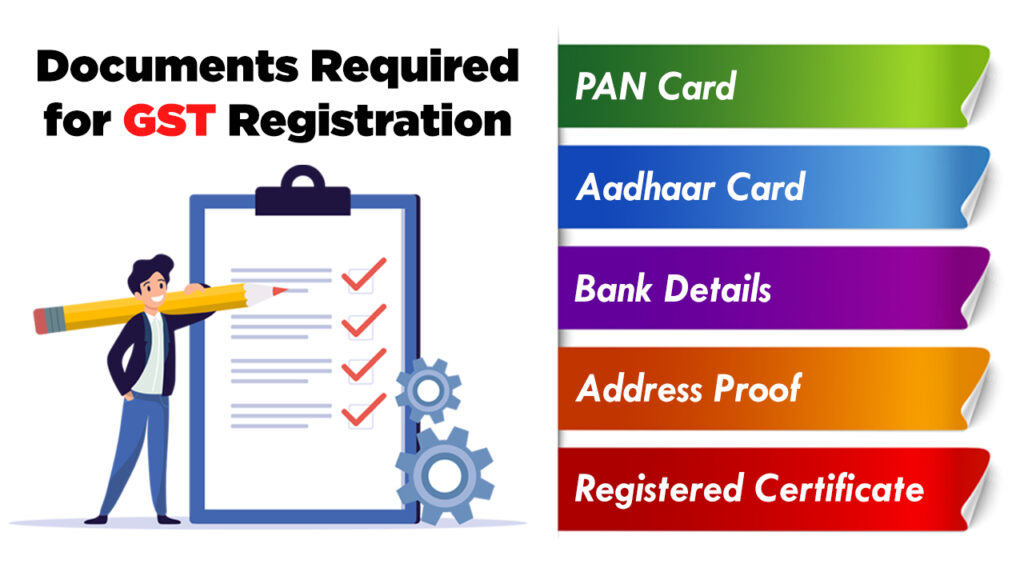The Ultimate Overview to Simplifying the GST Enrollment Process and Needs for Local Business Owners

Comprehending GST Essentials
To comprehend the principles of the Goods and Solutions Tax (GST) system, small company proprietors have to first understand its underlying concepts and effects. GST is a value-added tax levied on most items and solutions for residential intake. It intends to improve the taxation process by replacing several indirect taxes enforced by the state and main federal governments. Under the GST regimen, organizations are needed to collect and sign up tax in support of the federal government, making certain transparency and conformity.
Among the essential principles of GST is input tax obligation debt, which enables businesses to declare credit report for tax obligations paid on their purchases. This device prevents the plunging impact of tax obligations and promotes performance in the tax obligation system. Additionally, GST is a destination-based tax obligation, suggesting that the tax obligation is levied at the point of usage instead of the point of origin. This makes certain reasonable distribution of tax obligation revenue among states based upon where the services or products are eaten. Comprehending these fundamental concepts is important for small company proprietors to browse the intricacies of the GST system and make sure conformity with the legislation.
Qualification Requirements for Registration
Having established a foundational understanding of GST principles, local business owners should currently meet specific eligibility standards to continue with the enrollment procedure. In India, entities took part in the supply of products or services with a yearly accumulation turn over surpassing Rs. 40 lakhs (Rs. 10 lakhs for special classification states) are required to sign up for GST. Additionally, certain companies such as those included in inter-state supply of products, casual taxable individuals, and those called for to pay tax obligation under the reverse fee mechanism must sign up for GST regardless of their turnover. Furthermore, companies that were registered under the previous tax obligation routine (VAT, service tax obligation, etc) are also mandated to register under GST. Nonetheless, agricultural businesses that just supply produce out of main manufacturing are excluded from GST enrollment. It is essential for local business owner to very carefully assess their qualification based upon these criteria to guarantee conformity with the regulation and prevent any kind of penalties for non-compliance.
Records Required for GST Registration

Simplified Enrollment Process Steps
Adhering to the collection and confirmation of the requisite papers, the registration procedure for GST can be browsed visit their website through a collection of simplified actions created to assist in efficient conformity for little company proprietors. The very first step includes going to the GST site and choosing the 'New Registration' alternative. Subsequently, the candidate should fill out Component A of the GST REG-01 form with information such as PAN, mobile number, and email address to get an OTP for confirmation. When the OTP is received and gone into, a Temporary Referral Number (TRN) is produced for additional proceedings. The following step needs completing Part B of the kind with necessary organization details, uploading supporting records, and completing the verification procedure using DSC or EVC. Lastly, upon effective confirmation, an Application Recommendation Number (ARN) is released, indicating the completion of the GST enrollment procedure. By adhering to these simplified steps, small company owners can successfully sign up for GST and ensure compliance with tax guidelines.
Tips for Ensuring Compliance
To keep regulatory adherence and operational integrity, diligent oversight and proactive measures are pivotal in ensuring conformity with GST needs for local business proprietors. Small company proprietors should stay upgraded with GST guidelines, filing target dates, and any adjustments in tax obligation rates to stay clear of charges and maintain an excellent standing with tax authorities. One vital tip for compliance is to keep accurate and thorough records of all transactions, including invoices, costs, and billings related to GST. Routinely resolving monetary documents with GST returns can help in recognizing and correcting any kind of discrepancies immediately. Additionally, conducting regular inner audits or seeking specialist assistance can make sure that business is complying with all GST regulations correctly. It is also critical for local business owners to buy GST-compliant accounting software application that can enhance the tax obligation filing procedure and minimize errors. Last but not least, going to GST recognition workshops or training programs can boost understanding and compliance with GST guidelines, eventually benefiting the service in the future.
Final Thought
To conclude, tiny service proprietors should understand the fundamentals of Homepage GST, fulfill the eligibility requirements, gather necessary records, and adhere to the streamlined registration procedure actions to make sure compliance. By simplifying the GST enrollment procedure and requirements, small organization proprietors can prevent charges why not look here and run their organizations efficiently within the legal framework - Singapore GST Registration. It is crucial for local business proprietors to stay enlightened and certified with GST policies to keep a successful business procedure
Small organization owners looking for GST registration must guarantee they collect and submit the needed files to finish the registration procedure efficiently. The records required for GST enrollment generally consist of proof of organization enrollment or incorporation, FRYING PAN (Irreversible Account Number) card of the company address, identity and entity evidence of the promoters/partners/directors, pictures, address proof of the location of organization, bank account declarations or terminated cheques, and authorization types. Going to GST recognition workshops or training programs can enhance understanding and compliance with GST guidelines, inevitably benefiting the service in the lengthy run.
By streamlining the GST registration procedure and requirements, small service proprietors can stay clear of penalties and operate their organizations smoothly within the legal structure. It is essential for little organization proprietors to stay certified and enlightened with GST laws to maintain a successful service procedure.